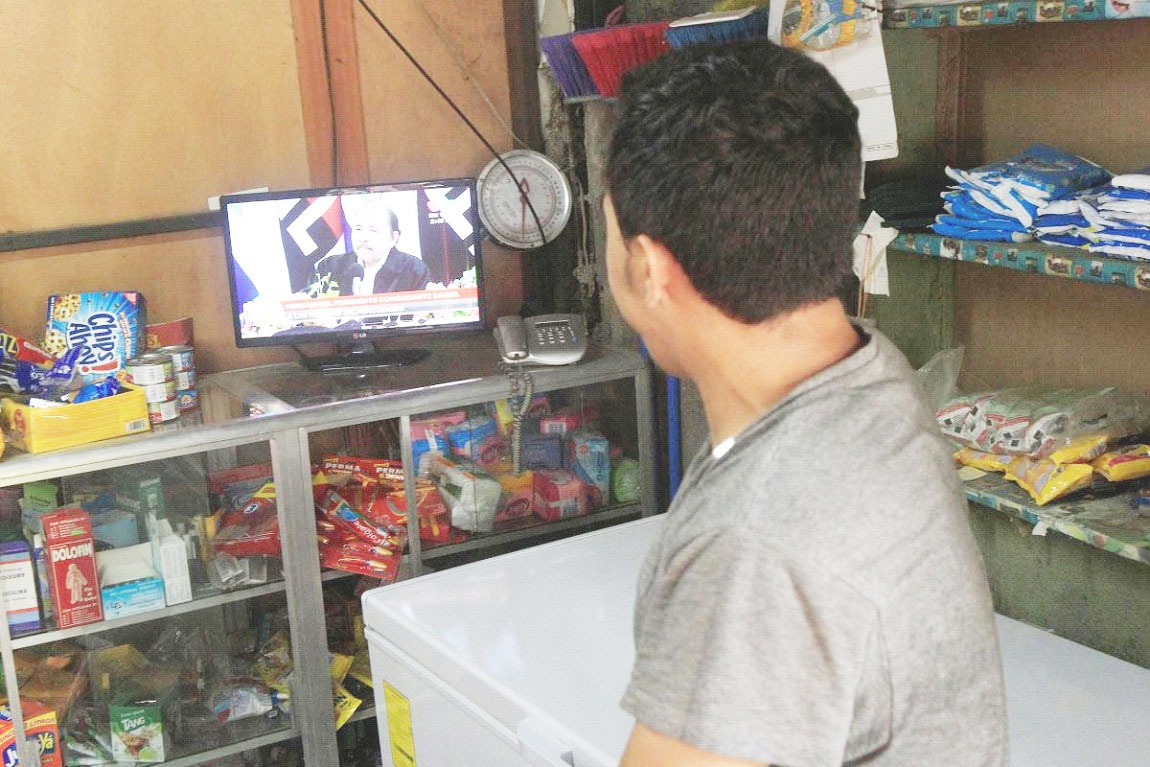MANAGUA, (Reuters) – Nicaraguan President Daniel Ortega said yesterday a planned overhaul of the welfare system that sparked days of deadly protests had been canceled, as he attempted to end the biggest crisis of his administration.
Ortega has been on the defensive since demonstrations began in much of the country on Wednesday against the plan to increase worker contributions to social security and to lower pensions.
Ensuing unrest killed at least eight people and sparked looting and panic buying, but protests in Managua died down considerably after Ortega’s announcement, according to Reuters witnesses. At least one protest march was planned for today.
The pope, the U.S. government and business leaders all urged Ortega to stop the violence before he appeared on television and said the measures approved last week would be withdrawn.
“The previous resolution of April 16, 2018, which was the resolution that kicked off this whole situation, is being revoked, canceled, put aside,” Ortega said.
The government argued welfare changes are needed to bolster Nicaragua’s finances, and Ortega said talks would be held to draft a new plan to strengthen the social security system.
But the government was stung by the protests, which one human rights group said had taken at least 25 lives. Stores in Managua were looted over the weekend, Reuters witnesses said.
Late on Saturday, local media said a reporter was shot and killed during a live broadcast from Bluefields, a town on the Caribbean coast hit by the unrest. Graphic footage of the incident soon spread onto local and social media.
The police crackdown on demonstrators and curbs on some media in the past few days have fueled broader criticism of Ortega, who has tightened his hold on the country’s institutions since he took office for a second time 11 years ago.
The U.S. State Department yesterday called for “broad-based dialogue” to end the dispute and “restore respect” for human rights, urging the government to let the media operate freely.
“We condemn the violence and the excessive force used by police and others against civilians who are exercising their … right to freedom of expression and assembly,” U.S. State Department spokeswoman Heather Nauert said in statement.
Lissett Guido, a Red Cross spokeswoman, said there were eight confirmed deaths and that the number could rise. The government had reported “almost 10” by late on Friday.
Marlin Sierra, director of human rights organization CENIDH, said it had logged 25 deaths, mostly caused by firearms and rubber bullets. That number could not be independently verified. Most of the dead were aged between 15 and 34, she said.
Pope Francis called yesterday for an end to the violence and called for differences to be “resolved peacefully and with a sense of responsibility.”
Videos and photos posted on Nicaraguan media showed people standing ready to defend their stores, while others formed lines to stock up on gasoline and food in case of shortages.
Nicaragua has been one of the more stable countries in Central America, largely avoiding the turmoil caused by gang violence or political upheaval that has at times plagued Honduras, El Salvador and Guatemala in recent years.
But top Nicaraguan business lobby COSEP has backed peaceful protests against the government, and said it would not enter talks with Ortega to review the social security plan until he had ended police repression and restored freedom of expression.
A former Marxist guerrilla and Cold War antagonist of the United States, Ortega has presided over a period of stable growth with a blend of socialist policies and capitalism.
But critics accuse Ortega and his wife, Vice President Rosario Murillo, of trying to establish a family dictatorship. The country remains one of the poorest in the Americas.










